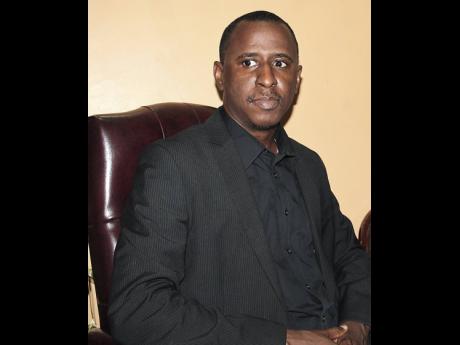NIDS ruling holds Parliament to higher standard, say attorneys
With the Constitutional Court formally adopting the position that the burden of proof now lies in the hands of lawmakers and not citizens, one member of the local Bar believes that the court’s affirmation of that premise by rejecting the National Identification and Registration Act (NIRA) 2017 will hold the nation’s Parliament to higher account.
“Once the claimant can prove that his rights have been breached, the Government now has a duty to show – has a burden of proof to show – the empirical data that was used to inform their decision, so it holds Parliament accountable and it requires them to act on empirical data, in addition to rational thought and thinking,” attorney-at-law Chukwuemeka Cameron said in an interview with The Gleaner.
He continued: “And they are now required to put that before that court once the citizen claims that his right has been breached, so it does hold Parliament to a higher level accountability and, importantly, transparency.”
In a landmark ruling on March 29, the Constitutional Court found overwhelmingly that NIRA infringed upon the right to privacy as guaranteed under the Charter of Fundamental Rights and Freedoms, which replaced Chapter Three of the Constitution in 2011.
The challenge to NIRA was brought by People’s National Party General Secretary Julian Robinson, who said the law breached, among other things, his rights to security of the person, right to a passport, and right to due process.
Cameron – along with his wife, attorney-at-law Queen’s Counsel Carolyn Reid-Cameron – was part of a legal team that back in 2012 launched a constitutional challenge to the Independent Commission of Investigations (INDECOM) Act 2010.
Reid-Cameron suggested that in light of the new charter, the test for constitutionality that needed to be applied was that of proportionality. However, the court then rejected the position.
But in its ruling on NIRA, the Constitutional Court adopted the position.
“The time has now come for the Supreme Court to take a clear and unambiguous position on the matter. It is my view that the contention of Mr Hylton, QC, is correct, that is, the wording of the new charter requires a new approach and that new approach is the test of proportionality,” Sykes stated in 309-page ruling.
‘enlightened approach’
Reid-Cameron lauded the court for taking the position she had suggested almost seven years ago.
“This judgment, I think, I can actually say that it is an enlightened approach that has been taken and recognition of an error that was more or less committed in relation to the Tredegar Park matter,” Cameron-Reid said in reference to the case of eight policemen prosecuted after they failed to obey a notice issued to give statements to INDECOM following a shooting in 2010. The cops also lost their appeal to the sentence.
Columnist and attorney-at-law Gordon Robinson said that the ruling heralds a new paradigm in which respect for the rights of others is, by law, more important than fear of any thing or any crime.
He, however, pointed out that the case also places a spotlight on the Government’s misplaced priorities.
“This result again exposes Jamaica’s pathetic system of governance. This case highlights the reckless prioritising of politics over governance by appointing a legislator as attorney general (AG).
“It’s the AG who should have warned Government about the constitutional difficulties from day one. Instead, we have an AG who helped as MP to fine-tune the legislation; voted to pass it into law; and then led Government’s legal team to defend the constitutional challenge,” Robinson said.

